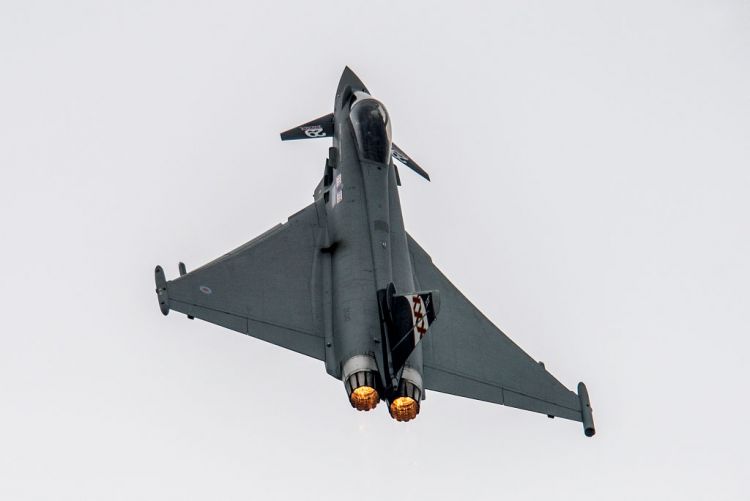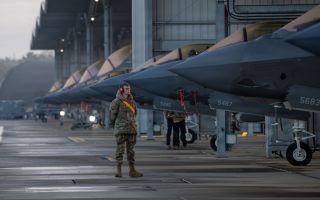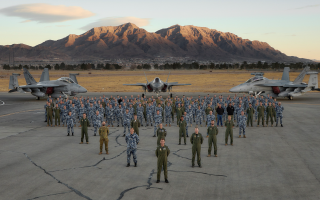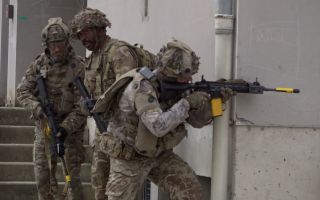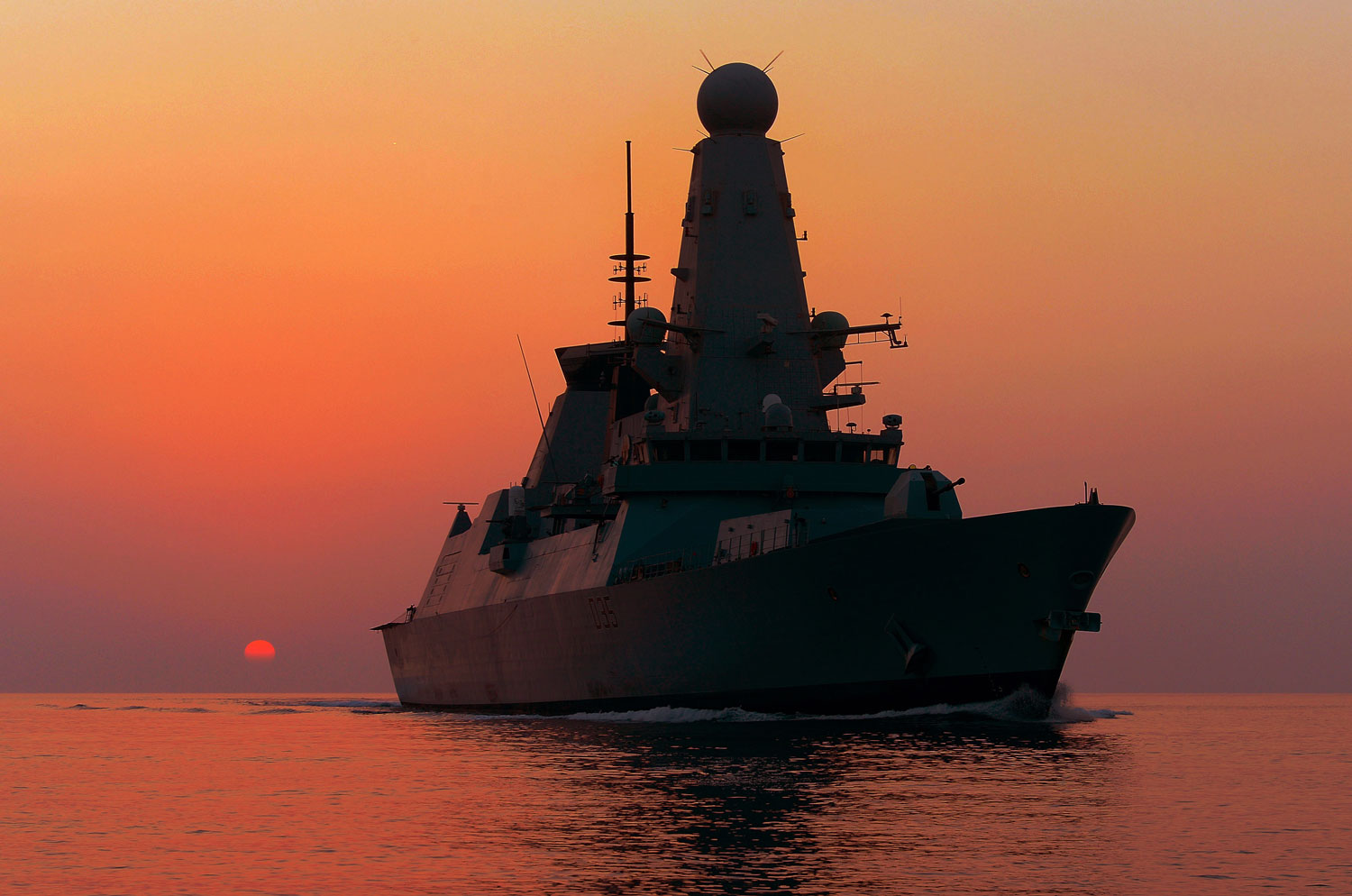
Tri-Service
“East of Suez”: Britain Seeks To Strengthen Ties With Gulf States

Procurement minister Philip Dunne led a delegation of 100 British companies and officials to the Dubai Air Show at the weekend.
The main aim of their visit is thought to be securing orders for the Typhoon.
There's growing concern in London over a lack of demand for the fighter jet, which has been outsold over the last year by its French rival the Rafale.
The minister said the UK was in “discussions with a number of countries and I am hopeful that there will be continuing demand for this aircraft”. In a statement he added:
“The UK and UAE continue to enjoy a close relationship as strategic partners, and more widely, the UK remains committed to promoting security and stability in the Gulf region.
"What happens here not only has a direct impact on the national security of the Gulf States and their citizens, but also the United Kingdom and the safety of our people, which is why it is vital that we work with close allies like the UAE to tackle regional threats such as ISIL.
"Our strong relationship with the UAE is about more than security – it is about prosperity too. This is an important area to do business and UK companies will continue to partner with the UAE for many years to come.”
For some time Britain has made it clear the UK is looking to consolidate influence “east of Suez” post-Afghanistan.
Last year the Royal Navy confirmed that a long-standing presence in Bahrain would become a permanent British base, with the Defence Secretary saying at the time that Britain will “be based again in the Gulf for the long term”.
South of Dubai, a squadron of RAF Typhoons are based at the Al-Minhad airbase. The idea is to pre-position UK forces and equipment before they are needed while demonstrating support for countries considered allies.
Ministers have also made no bones about hoping to benefit from the considerable resources of the Gulf states. With the publication of the Strategic Defence and Security Review (SDSR) scheduled for later this month, Philip Dunne said its theme is the strength of Britain’s international partnerships.
“The Gulf plays an important part in that…We’ve already announced the establishment of the first permanent basing to the east of Suez since the 1970s, with the development of the naval base in Bahrain. And we look to broaden and deepen our contribution to the security and stability of the region through our SDSR process.”
The MoD is hoping to garner interest in the Typhoon from Gulf states
Dunne wouldn’t be drawn, however, on the state of the potential second tranche contract on the Eurofighter Typhoon for Saudi Arabia.
The UK secured a $6.8bn (£4.4bn) deal in 2007 to supply 72 Typhoons, which are built by a consortium involving BAE, Airbus and Finmeccanica, to the country, but a potential second tranche contract to order an additional 40 has been delayed for some time.
The historically difficult relationship between the two nations has been further strained by recent clashes on human rights and the nation's strict legal system.
But despite continuing uncertainty about the Saudi order BAE was given a boost in September after Kuwait agreed to buy 28 of the Typhoon fighters.
Previously Ian King, BAE Systems’ Chief Executive, had said that the future of the Typhoon production line depended on securing more orders, threatening British jobs and expertise as well as the company’s profits:
“Without more orders we will have to look at slowing down production [to keep the line running], which could mean additional cost. We want to have continuous production.”
Beyond the issue of lucrative defence contracts in the Gulf, Britain wants to maintain a presence there from a security point of view, while both the United Arab Emirates and Saudi Arabia are keen for the UK to increase support for their military involvement in Yemen and Syria.
So far Britain has declined these requests, but this week’s delegation to the Gulf is a sure sign of an appetite in London to build strong allegiances in the region.
